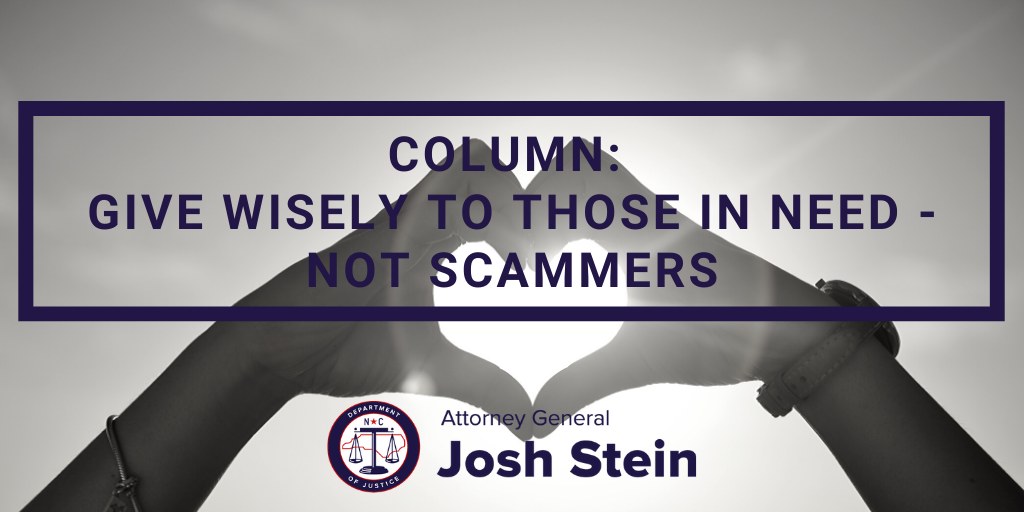
Attorney General Josh Stein
January 2020
Earlier this month, the Durham Housing Authority relocated about 270 families from McDougald Terrace, a Durham public housing complex, after inspections indicated elevated carbon monoxide levels in appliances. As a result, concerned community members have worked to raise funds for residents who had to temporarily relocate and deal with significant life disruptions. However, my office received notice of an unauthorized GoFundMe campaign that claimed to be raising money for McDougald Terrace residents. We worked with GoFundMe to shut down that fraudulent campaign and are keeping an eye out for others – but as we start 2020, the incident is a good reminder to be aware of charity scams.
There are so many ways to give to charity and many deserving charities to choose from when you’re donating. Before you give anything, do your research. Prioritize charities that you are personally familiar with or that operate in your local community – you’ll have more confidence in how your donation can help make a difference. Remember to ask how your donation will be used, so you can be sure that your money is going to help those in need instead of paying for the telemarketers.
Call my office’s Consumer Protection Division at 1-877-5-NO-SCAM to check whether the charity has complaints against it and check its license with the Secretary of State. You can also research a charity’s ratings and history using resources including the Better Business Bureau’s (BBB) Wise Giving Alliance, Charity Navigator, Charity Watch, or GuideStar.
Watch out for fake charities that have names very close to the names of real charities. Scammers use this trick to confuse you into thinking you’re giving to a legitimate charity. Don’t be pressured by pushy telemarketers – no one should pressure you into giving money or sharing your personal or financial information on the spot. And watch out for unsolicited emails and text messages or unverifiable social media posts asking for your donation. They could be phishing scams that will redirect you to copycat websites to steal your personal information.
Once you’ve chosen a charity, contact it at a website or phone number you know to be valid. If you’re donating online, make sure the website is secure – look for a lock icon in the address bar and a URL that begins with “https”. It’s best to pay by credit card for security and tax record purposes. If you decide to pay by check, make it out to the charity, not an individual.
When we give to charity, we’re making an effort to help people in need or causes we believe in. Scammers who use that sense of community to take our money are unconscionable, and my office will do everything we can to stop them. You can learn more about charity scams at ncdoj.gov/charity. If you believe that you or someone you know has been the victim of a scam, please file a complaint with my office’s Consumer Protection Division at ncdoj.gov/complaint or 1-877-5-NO-SCAM.
